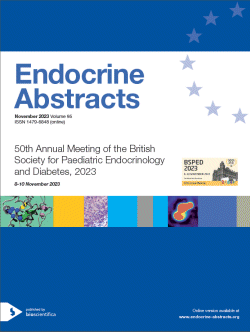Searchable abstracts of presentations at key conferences in endocrinology

50th Annual Meeting of the British Society for Paediatric Endocrinology and Diabetes
Manchester,
UK
08 Nov 2023 - 10 Nov 2023

The 50th Annual BSPED Meeting will take place at the Midland Hotel, Manchester from 8-10 November 2023.



